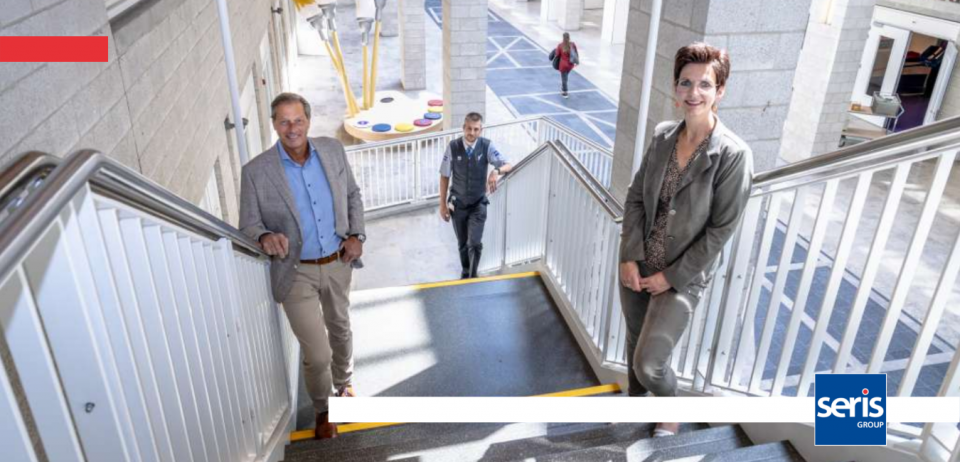
Healthcare security is one of the specialities of Seris in the Netherlands, for example at the Albert Schweitzer Hospital in Dordrecht. The success of Seris work is based on the human dimension, the reliability of the teams and their ability to adapt.
Seris, a reliable partner
As Head of Reception, Front Office & Security at the Albert Schweitzer Hospital, Annemieke van Wijngaarden was looking for a new security partner in early 2020. She says: "It's not easy in today's job market, where security guards are also in short supply. And good security personnel are even more scarce". In these circumstances, Annemieke notes that "the Seris teams immediately understood why hospital security is such a specific branch. In addition, they introduced us to the planned team at an early stage, including team leader Christiaan*. A year and a half later, almost everyone is still there. That's quite exceptional, I can tell you from experience".
* Christiaan is a big, friendly giant. In the main hall of the Albert Schweitzer Hospital in Dordrecht, the security guard greets visitors with a smile. He is helpful and alert. When he poses for a photo and a woman in a wheelchair knocks over a disinfection column further down the road, he rushes to help her. At the same time, you can see and feel that if he has to be firmer, he won't hesitate for a second. Gently when possible, firmly when necessary.
What makes securing a hospital so specific
"You have to be able to communicate and cooperate with a surgeon and a homeless person who just walks into the hospital. And with people from all kinds of cultures" comments Annemieke. "And you meet them in totally different circumstances. Whether it's grandparents coming to see their new grandchild, or family members who have learned that their loved one has had a serious accident. Or with people who have lost a loved one and are hugging each other in the hall in all their emotion. Although it is understandable, you have to talk to them because of the Covid measures" adds Aad, General Manager of SERIS Security in the Netherlands. "On the other hand, the gratitude of sad people can be very beautiful. It gives you satisfaction, which is one of the most important reasons to choose this profession" concludes Annemieke.
Aad de Vries also believes that "a person who thinks that security is a difficult profession is not suitable to work in a care facility. You need to be able to provide care, to have something to do with people, to be easily on the same wavelength as everyone else. Topics such as aggression management and keeping medical equipment and hazardous substances safe are taught in our own training and education programmes. But if you don't have the right traits, it won't work".
A working context under tension
"And then there are the incidents. The atmosphere on Saturday evening is different from that on Tuesday afternoon" says Annemieke, before adding, "apart from that, almost every day we have detainees who have to be escorted through a back entrance. Crime victims and suspects who have already been arrested by the police also come regularly. These are intense cases. Or someone who has suicidal tendencies, who tries to run away from the hospital again and again, as we had recently".
"All these people deserve the same attention. Sometimes you have to be firmer, but as a security officer you always have to de-escalate. You do it with your mouth and your attitude. These are your only weapons. If that doesn't work, you call in the police. They are just around the corner. And then you change your attitude as a security guard: first the environment and then yourself to ensure your safety" analyses Aad de Vries.
Reactivity at all times
"After the incidents, comes the follow-up", explains Annemieke, adding, "events can have a major impact. It is sometimes difficult to assess this, and a security guard finds it easier to deal with incidents of aggression than with human grief. Especially if it is a close situation, for example if a child dies and you have children yourself, it can affect you more".
"It is important to get to the scene quickly to avoid a team member having a burn-out a year later, the seeds of which are in such an incident. We work together on this. That's what makes the cooperation so great, apart from the complexity and the fact that it's nice to work for an institute like Albert Schweitzer" concludes Aad.